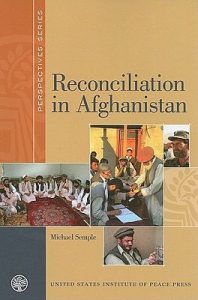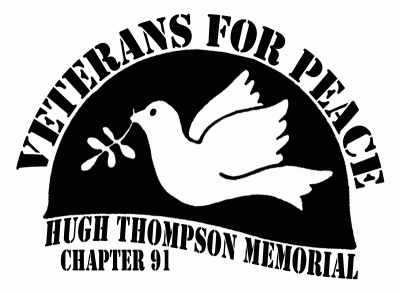An individual’s view towards the ongoing war in Afghanistan and Pakistan is strongly influenced by political ideologies, but above all it must be informed by the facts, for the ideologies themselves should be checked against the reality. We do not presume to possess superior knowledge about the situation in Afghanistan. Instead, we are attempting to offer a broader perspective on this war than that presented by our Administration and skillfully delivered to the American public by the major news networks. We invite you to examine the following resources and to draw your own conclusions. Here the emphasis is given to the observations and views of US troops who served in combat missions in Afghanistan and the local Afghans facing the war every day:
In Feb 2012 Lt. Col. Daniel Davis upon his return from his second tour of duty to Afghanistan published a revealing article in The Armed Forces Journal titled “Truth, lies and Afghanistan: How military leaders have let us down” indicating the absence of success on virtually every level, and that our leaders are not telling us the truth about what is going on in Afghanistan. The explosive publication was followed by several interviews including this one by the PBS:
So, after more than 10 years of relentless combat by superior US/NATO military forces and the efforts to create a stable central government, the armed Taliban opposition is stronger than ever while the support by local Afghans for the current government is steadily declining. It has become increasingly obvious that no foreign military strategy can be successful in Afghanistan since the entire concept of equating the Taliban with al-Qaeda, as devised by our Administration, is deeply flawed. It was al-Qaeda, not the Taliban that attacked the United States on 9/11. The Taliban is a network of conservative and nationalistic Pashtun militia groups in Afghanistan and Pakistan opposing foreign intervention and thereby enjoying growing local support. Al-Qaeda, in contrast, is an Arab-based international terrorist network with less than 100 members still residing within the Afghan borders.
To get a deeper exposition on the issue we invite you to watch the a 2009 documentary about the ongoing war in Afghanistan featuring experts from Afghanistan, the U.S., and Russia among others discussing critical issues such as military escalation, how escalation will affect Pakistan and the surrounding region, the costs of war, civilian casualties, and the rights of Afghan women. In the last part, the documentary advocates an alternative vision to the current U.S. policy on Afghanistan. Here is the trailer:
To watch the full documentary visit the official website: Rethink Afghanistan. In part, the above documentary draws on the experiences of combat war veterans who served tours of duty in Afghanistan and formed the Veterans for Rethinking Afghanistan and are committed to showing Congress and the public the realities of the war. Their message is: Rethink the U.S. foreign policy to include non-military solutions for the problems in Afghanistan and Pakistan.
Rather than waging war against the Pashtuns and stoking the fires of extremism, our senior leadership should have pursued policies of reconciliation leading to integration of the opposition forces into the Afghan power structure. Back in 2009 the US/NATO had a chance at reconciliation when the Taliban offered to give legal guarantees that it would not allow Afghanistan to be used for attacks on other countries in exchange for a timetable for NATO’s troop withdrawal. Instead, the US/NATO escalated the war hoping to weaken the opposition and eventually get a better deal out of inescapable reconciliation with Pashtuns. Certainly, this is not going to be a better deal for thousands of victims of this war and their families, the US/NATO and Afghan soldiers killed and wounded in combat, and the American people who paid more than $500 billion for this military adventure.
 The subject of political reconciliation and negotiations with the Taliban is thoroughly explored in the book Reconciliation in Afghanistan (United States Institute of Peace Press) by Michael Semple, former deputy to the European Union’s special representative in Afghanistan, who argues for direct talks with the Taliban leadership council in Quetta, Pakistan, to seek an agreement on renouncing international terrorism and integrating reconciled insurgents into the Afghan political system. Also, the recent studies by the Carnegie Endowment for International Peace have drawn similar conclusions namely: “The U.S. strategy has practically no chance of succeeding and is in fact preventing the only realistic solution—opening negotiations with the Taliban leadership.”
The subject of political reconciliation and negotiations with the Taliban is thoroughly explored in the book Reconciliation in Afghanistan (United States Institute of Peace Press) by Michael Semple, former deputy to the European Union’s special representative in Afghanistan, who argues for direct talks with the Taliban leadership council in Quetta, Pakistan, to seek an agreement on renouncing international terrorism and integrating reconciled insurgents into the Afghan political system. Also, the recent studies by the Carnegie Endowment for International Peace have drawn similar conclusions namely: “The U.S. strategy has practically no chance of succeeding and is in fact preventing the only realistic solution—opening negotiations with the Taliban leadership.”
Demilitarizing U.S. strategy would not mean abandoning the people of Afghanistan. Ending combat operations should be linked to a greatly increased commitment to development assistance and democracy-building programs for local groups willing to uphold human rights principles.
We invite you to join our effort toward changing the flawed US foreign policy in favor of nonviolent conflict resolution. Learn more about our mission and join us.

